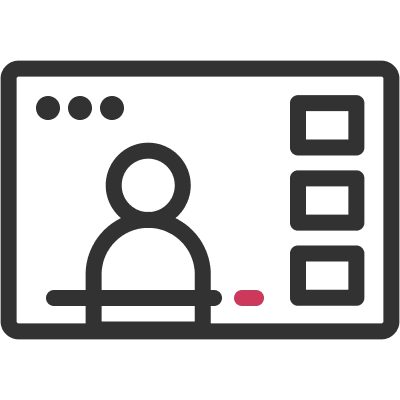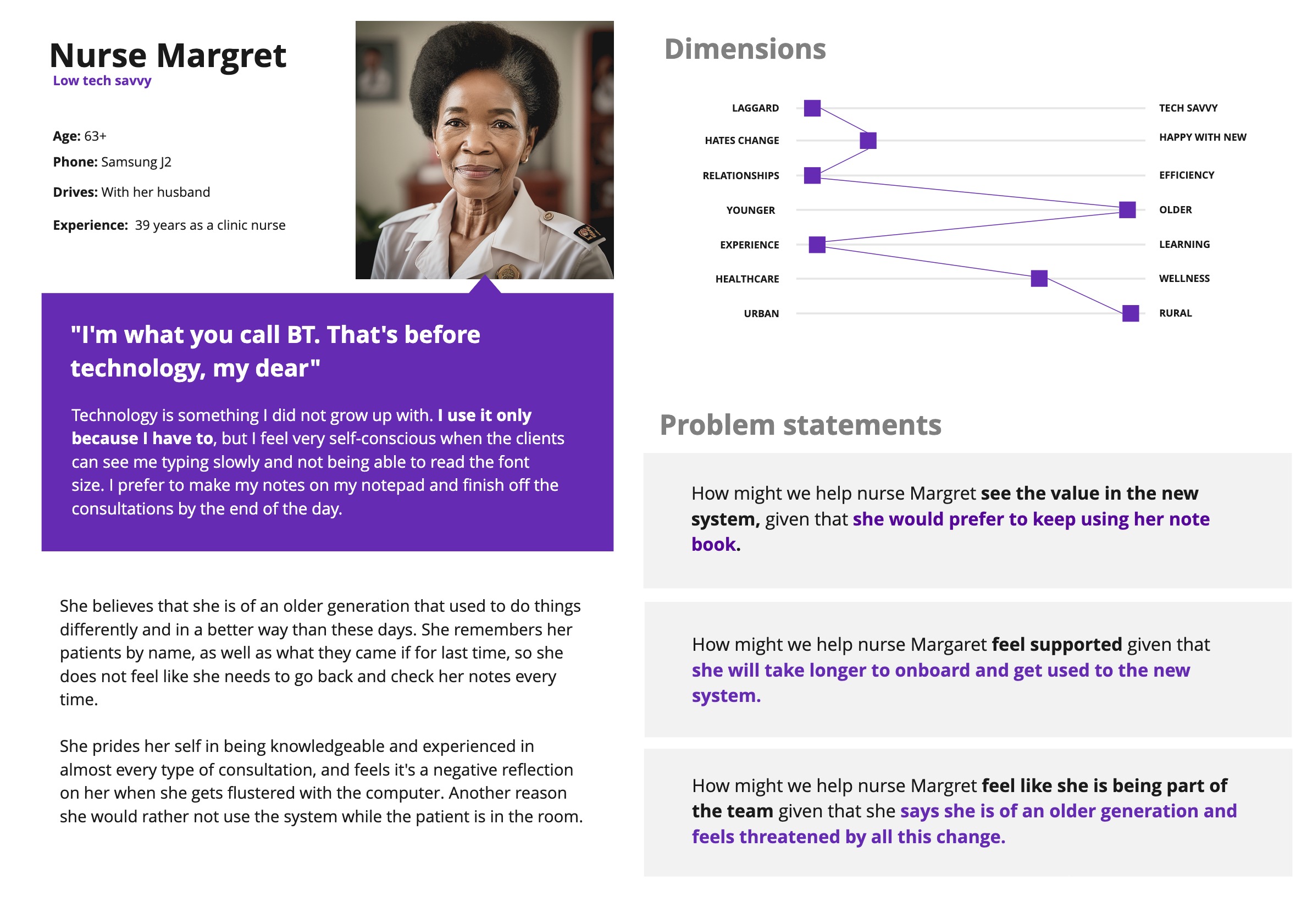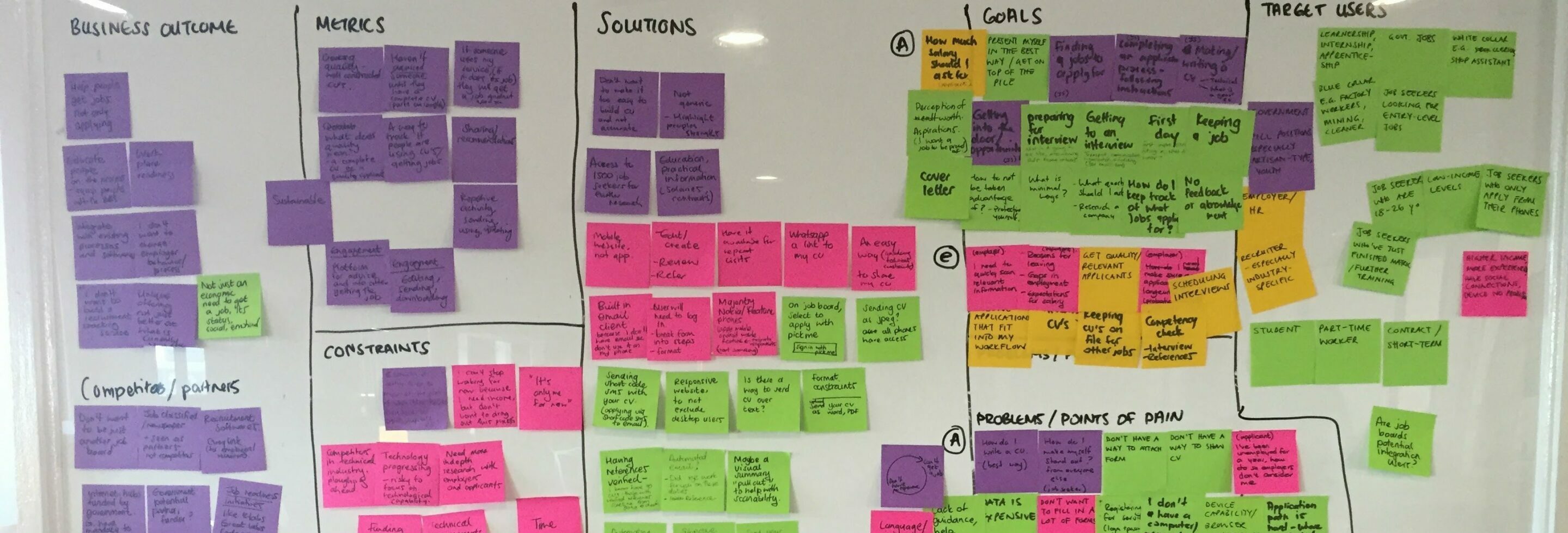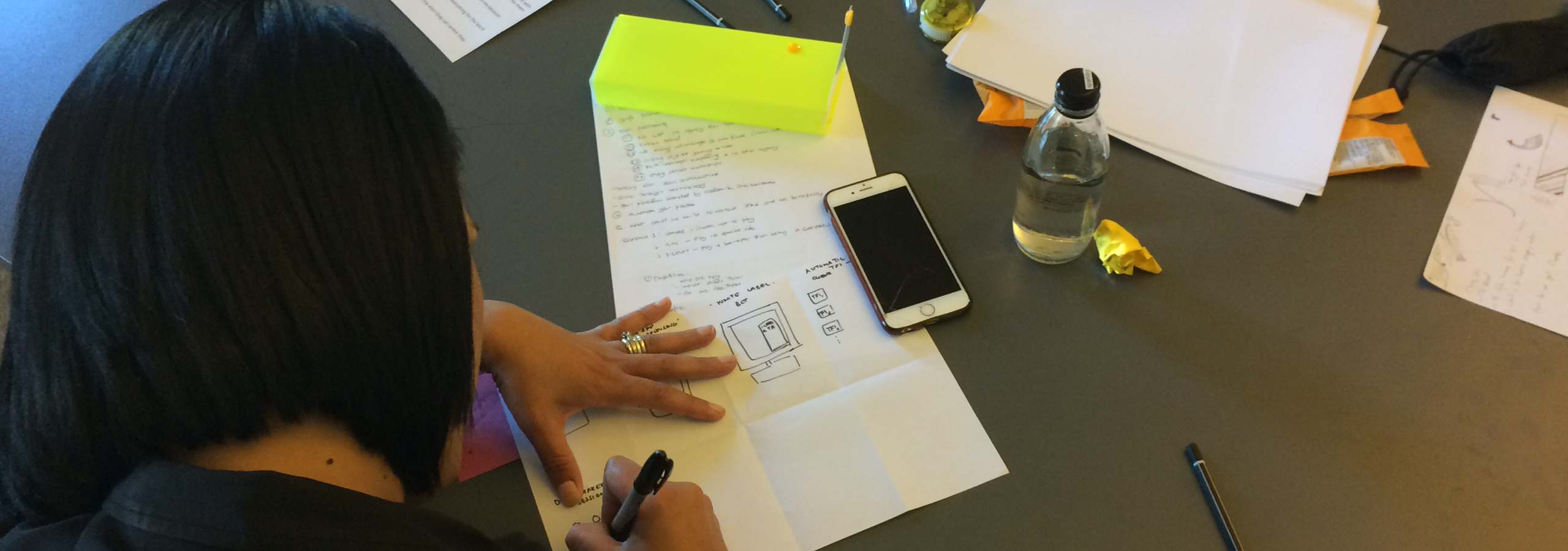
Workshops & Coaching
Personas, Ideation, Journey mapping…
Implementing change based on customer insight is a vital part of being customer-centric. We can help you socialise the findings from customer research within your organisation, run workshops to clarify what to do next, or train your team to run their own research.
There are many different tools we can use based on your team’s needs, but the most popular are:
Personas
A persona is a hypothetical, archetypal user character, defined in detail. They have names and faces so the whole team can picture them and understand their motivation and behaviour. They are a great way for your team to build empathy with your customers. Ideas are easier to imagine when you can picture someone using the product and stories are easier to tell when you can tell them about someone. They also ensures that we are solving the right problem, because they highlight the customer’s need (usually as a Job-to-be-done).
Personas are not your average customer, but rather those who view the world through extremes. If you can design for the personas on the “edge” you will by default be designing valuable experiences for everyone in the middle.
Persona development can be done before or after customer research. If it’s run before research, we will create best guess “proto-personas’ that we then prove or disprove with customer research.
The persona development package usually consists of a full-day workshop with your team defining the behavioural dimensions of your customers. We will then use this information to create 3 – 4 personas that represent the extremes of those behaviours.

Journey maps
Journey maps visually communicate the end-to-end flow of a customer’s experience. We can map out the existing customer experience that highlights the current points of pain the new solution needs to solve, or we can use a journey map to define how the ideal experience should work.
As-Is journey maps
- Describes the current process as it is today from the customer’s point of view
- Highlights points of pain & areas of opportunity
- Shows what they are doing, thinking & feeling
- Gives context about how they got there and where they are going
Ideal (future-state) journey maps
- Describes how we would like the process to be
- Are from the customer’s point of view but with some ‘back-stage’ details
- Highlights how we want customers to act, think & feel
- Features which business capabilities should exist to support this behaviour

Product discovery
Usually run in the form of a full-day or half-day workshop, we investigate the most important areas of an idea or new product. We look at your customers, the problems your idea is solving, the business goals as well as the constraints. In other words, it helps to find the overlap of whether a solution is Viable, Feasible, and Desirable.
It works well when you have an existing idea that you want to explore the details of. At its core, it’s a canvas of empty blocks that need to be filled in, but during the process of filling them in, hard questions are asked about the details. It’s okay if we can’t fill in all the sections, this just highlights what we still need to investigate.

Ideation
To make sure you have a good idea, you need to have lots of them. In the ideation phase of design thinking, we use divergent thinking techniques and games to help generate lots of ideas. It’s not about quality at this point, it’s about quantity.
The ideation workshops have a number of phases that start off with defining a good How Might We questions, working alone to answer the questions, and then turning to your team to help combine, iterate and form more robust solutions.
A few techniques we like are:
– Crazy 8
– Provocation
– Design Studio

Training
If we are working with you for a limited time, we want to leave your team with a good understanding of UX. We are happy to teach techniques, processes, and theory so you can keep the momentum going on your own, if you have the capacity.
Ideally training will happen on a project, but we can also run more formal training courses in UX design, research, and design thinking.
